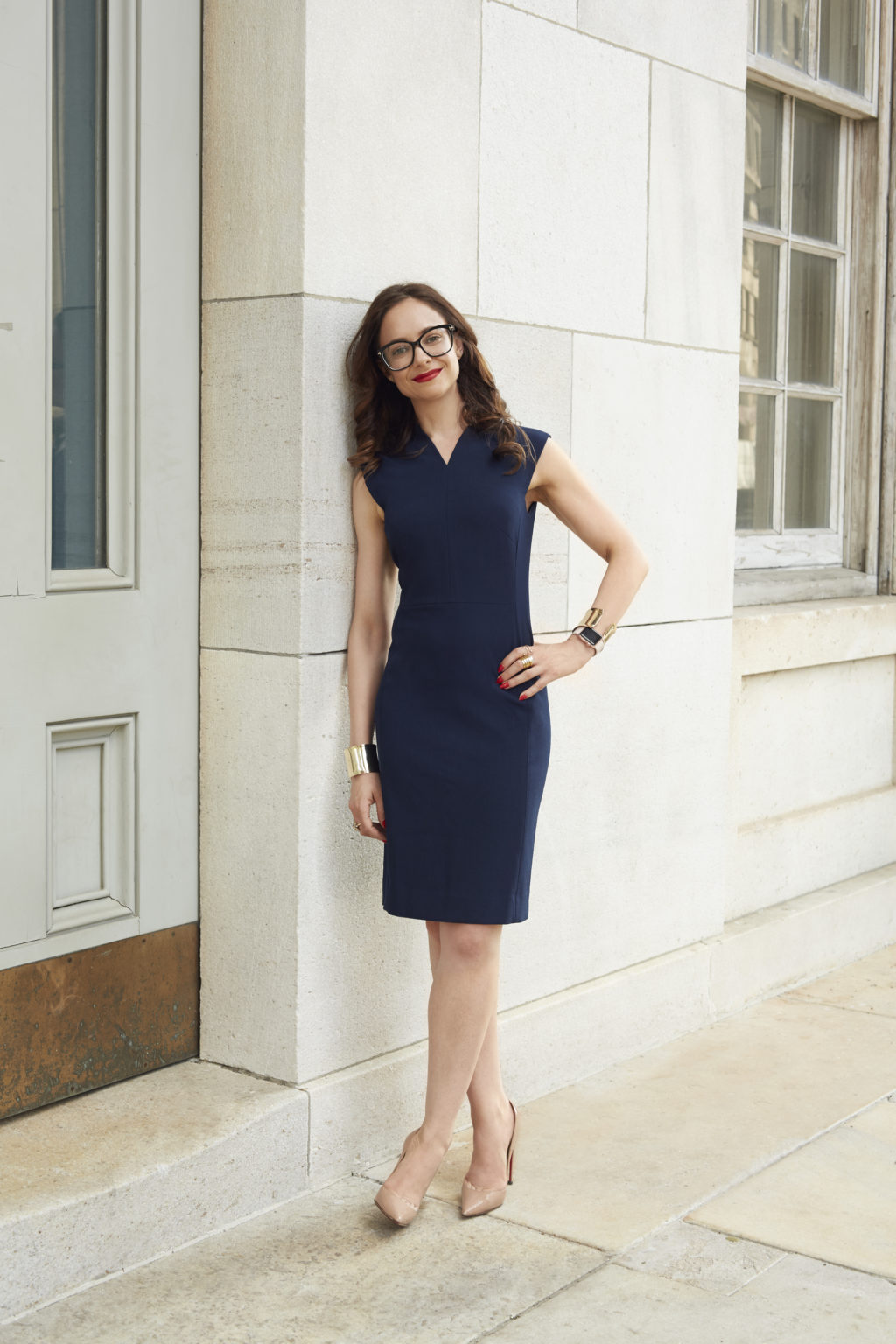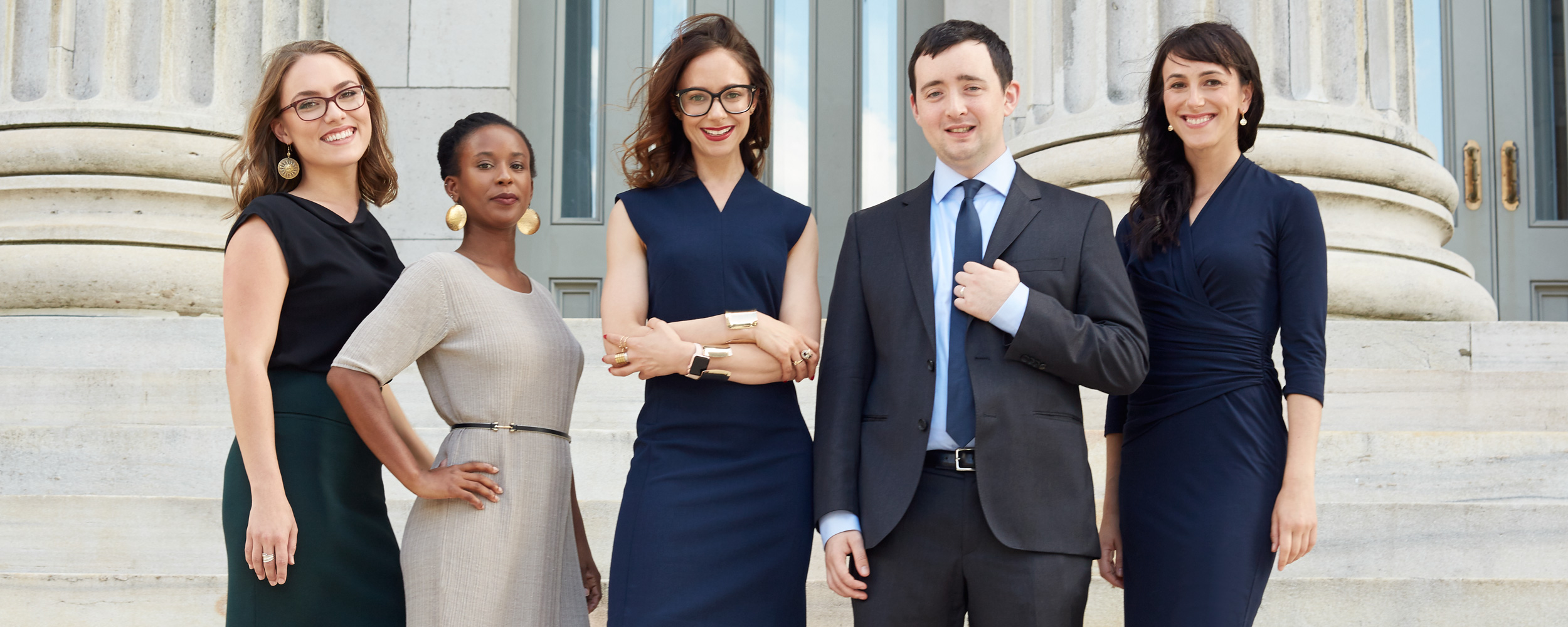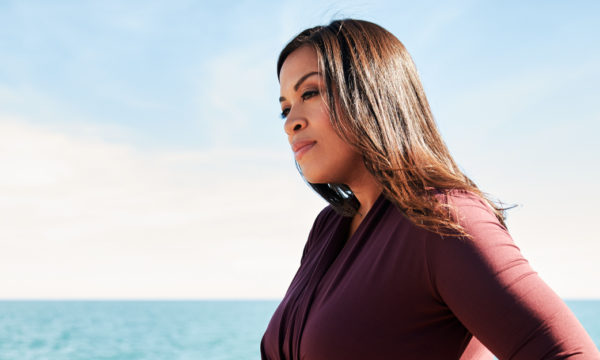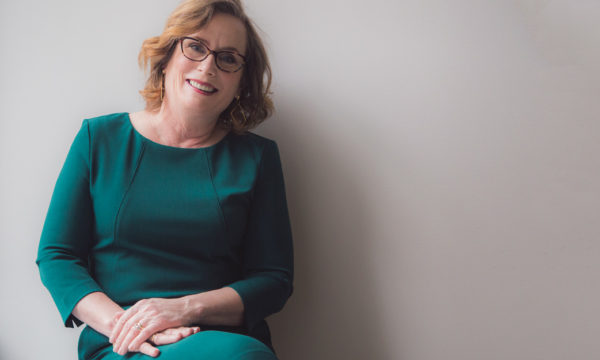Attorney Carrie Goldberg and the Crusade Against Revenge Porn
July 12, 2017 | Filed in: Woman of the Week
Several years ago, attorney Carrie Goldberg found herself in a terrifying position: An angry ex threatened to send intimate photographs of her to her colleagues (also known as “revenge porn”), and she had no idea how to stop him. The incident prompted her to quit her previous job (at the Vera Institute, a criminal-justice nonprofit) and start her own practice in 2014. Today, she and her staff of four (Adam Massey, Lindsay Lieberman, Carla Cain-Walther, and Carlie Tise) focus on issues of internet privacy and abuse, domestic violence, and sexual consent; their work has been instrumental in shaping policies adopted by major social-media platforms and search engines—including Google, Instagram, Facebook, and Twitter—to stop the proliferation of revenge porn.
As you might expect, Goldberg is not your typical lawyer; known for wearing nerdy-chic glasses, bright-red lipstick, and spike stilettos, she keeps a velvet punching bag in her office. A few weeks ago, we spent a sunny afternoon talking about eureka moments, being a boss, and why power is a renewable resource.
I WAS MOST EXCITED to start my own firm for three reasons: 1. I could control the dress code, 2. I could control the thermostat, and 3. I could yell “fuck” and slam the phone down whenever I wanted to. And I want all my staff to feel that they have that same freedom. Except for the thermostat—that’s a completely fascist thing. It’s nice to have a female-temperature office.
I GET MY CONFIDENCE from the fact that I’m not afraid to fight. That comes from having been in a difficult situation myself that took a lot of power to rise up from. It was a very bleak time for me. One night I was at my computer, frantically searching the internet for information about what I was dealing with, which involved stalking and revenge porn, when I came across this article by Mary Anne Franks [a professor at the University of Miami School of Law, and the Legislative and Tech Policy Director of the Cyber Civil Rights Initiative]. That was my eureka moment. I was like, “Oh my God, I’m not alone.” It was comforting to realize that what was happening to me was happening to other people, enough so that these brilliant women were writing about it.
WHEN I QUIT MY JOB AND STARTED my own shop, I didn’t set out to build the enterprise that it has become. I was planning on being a solo practitioner. I figured I’d do mostly guardian work, and since I’d learned so much about the stalking experience, I’d put a little extra tab on my website saying I could help with that on the side. I also started blogging and tweeting about it a lot, and sending lawmakers letters and emails, blasting them, pleading for legislation on this issue. Then clients started coming in. It was so organic. Soon, we began branching out to protect victims of sexual assault in schools. That happened because, for some of our clients, the absence of consent wasn’t just in the distribution of the image, it was also in the capture of the image—and in some cases, the underlying sex act depicted was also nonconsensual. One of my first cases was this fourteen-year-old girl who had been sexually assaulted, and then her rape tape went viral around her Brooklyn eighth grade class.
SOME BOSSES HIRE PEOPLE that they can control, but I hire superstars that can excel. I try to give them enough room and guidance to do that. I’ve got the most wonderful staff. The first person I ever hired was Adam. I was all on my own for the first year and a half of my practice, and then Adam came into my life as an intern. After he came on, my whole goal was to make enough money so that I could hire him when he graduated from law school. He complements me in a great way. He actually ended up paying for himself, because he was instrumental in early settlement negotiations. It was me and intern Adam versus a very powerful defendant, and when we got our contingency, I was like, “Adam, you just paid for your own job. And we’re moving to a beautiful new office.”

Carrie wears the Aditi 2.0 dress in galaxy blue.
MY STAFF AND I, WE’RE ALL IN THE PLATOON together. Our job and the topic of our work is not something that many other people can relate to. It bonds us to each other in a way that doesn’t exist in most jobs—most people don’t look at porn for work. We’re up at all hours texting each other, but we have policies to make sure that people are taking their vacations and recharging their batteries and taking time away from the rest of us, whether that’s working at home or going to a gym class. It’s important to me to nourish healthy relationships among the staff.
I SPEND A LOT OF TIME THINKING about the reasons why, in some cases, people are not ready to become our clients and take on their problem and tell it to fuck off. They make the giant leap to come here, but then they’re not ready to sign up. When clients come to us, they’re in the middle of what might be the worst experience of their lives, and it’s like a tornado around them. Many of them have never had to hire a lawyer before. We try to instill confidence in them by modeling it, and showing them that we’re part of a team that they are orchestrating. They deserve to have their crisis resolved with people who have the skills to do it. People who aren’t ready to retain us sometimes feel like they can “tolerate” their hell for longer. When it comes to being attacked and stalked, and being the target of revenge porn or extortion, no one should feel like that’s a tolerable condition. Whether it’s getting a restraining order, deanonymizing a stalker, sending someone a cease-and-desist, or suing a mega-billion-dollar tech company, our clients deserve to have the problem fixed. Bringing on additional resources, like an attorney, needs to be recognized as the empowering decision that it is.
WE LIVE IN A CULTURE where there’s real value in privacy, because humiliation is so accessible to everybody. The ability to humiliate another person—we all have the ability to do that, thanks to the internet. Tomorrow, I could publish a scathing blog post about you and this interview, and claim that you have STDs, and that this was such a waste of my time. And then I could promote it on Facebook, and even buy a webpage in your first and last name and put it up there and send the links to all your connections on LinkedIn. And even though it’s total bullshit—and if you sued me for defamation, you would win—those lies are now in everybody’s head. And it’s also in everybody’s head that you bring drama. And your Google results might lead to this false information. Whether it’s naked pictures or false claims, a lot of my clients have experienced things like this.
I WANT OUR CLIENTS TO FEEL that even if a person has taken some control away from them, it doesn’t mean they’ve lost their own power. It’s not like you have a finite amount of power that can be diminished forever. In fact, if someone tries to overpower you, you have the ability to produce more of your own power to combat the attack. This is a very useful mindset. People talk about the loss of control, the loss of power, but we need to conceptualize that differently; power is a renewable resource. It can grow, and be recognized. The decision to hire us as an attorney is an exercise of that power. Together, we can build a whole military, and the client gets to lead it.

From left to right: Adam Massey, Carlie Tise (in the Rowling top in black and the Harlem skirt in deep forest), Carrie Goldberg (in the Aditi 2.0 dress in galaxy blue), Carla Cain-Walther (in the AJ dress and the Bridle belt), and Linday Lieberman (in the Casey dress in galaxy blue).
BECOMING A LAWYER WAS A SURPRISE. I was a community worker for Holocaust survivors right after college, and the job really took over my life. In my extra time, I was reading about the Holocaust and watching documentaries; during my vacations, I would go to Europe to go to concentration camps. It was not healthy. I was consumed by this idea of getting restitutions and reparations for my clients, but it’s an incongruous idea, money for suffering. A lot of my clients felt guilty taking it. They’d say, “This is blood money, and it doesn’t undo the deaths of my family or the suffering that I endured in the camps.” Some of them had survived medical experiments, and got settlements for about $2,500. And I was like, “No, that number doesn’t fit what you’ve endured.” So I went to Brooklyn Law School while I continued working for the Holocaust survivors during the day. When I graduated, I was like, “Oh shit, now I have to become a lawyer.” I did not have a grand plan.
I’VE ALWAYS BEEN FASHION-OBSESSED. It goes back to high school. Even when I was a case manager for Nazi victims, I would wear four-inch heels walking miles from one house to the next. When I started my law career in the glamorous world of housing court, where I represented low-income tenants, I thought it was important to distinguish myself because I was a new attorney and I wanted the judges to know me. So every day in court I wore sky-high heels and a tie. I believe we should all be using whatever advantages are available to us. That includes braininess and strategy as well as fashion. I just like what I like. I like gold things, nails, and lashes. They are all kinds of weapons, aren’t they?
FASHION MAKES ME MORE APPROACHABLE for some of my clients, in a way, especially the younger ones in their twenties and thirties—I think it removes a wall. Fashion is like sports or the weather. You can always start a conversation complimenting someone on an outfit. A stark business suit is an unnecessary costume, to me. I’ll show midriff and wear short shorts sometimes if I feel like it.
I AM AN EXERCISE JUNKIE. I’m a distance runner. But I don’t need to go to a silent zen retreat for two weeks to find balance in my life, because I find my work joyful. It gets intense as hell, but it’s my life’s calling. If I get home at 11:00 p.m. and the doorman’s like, “You poor thing, working so late,” I’m like, “No need to pity me. I was doing exactly what I wanted to do all night.” Even if people are coming to me at the height of their misery, I can still find joy in that moment because I know how to fix those problems. It may seem overwhelming and unsolvable, but I know exactly what to do.
Photographs by Maria Karas.









